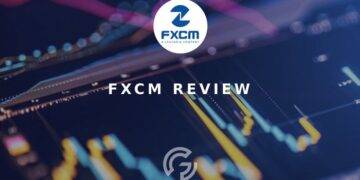If you are applying for a credit score and loan anytime soon, you know the importance of having a 750+ CIBIL score. With a score of less than 750, you might not, however, be eligible for some good loan and credit card offers. You are more likely to be offered better loan rates and credit card offers after your ICICI CIBIL score exceeds 700. Banks and other financial institutions usually ask for higher credit scores as it means there is a lesser risk for the bank. Alas, not everybody has this score, but one doesn’t need to feel bad. It will take new financial habits for you to raise your credit score from your existing CIBIL score, say, 500 to 750. With the right set of financial practices, you will be able to achieve the ICICI CIBIL score, and we are here to help you with what you can do over time.
Time Required to Raise a 500 Credit Score to 700: Building a credit score from 500 to 700 will be easy for individuals who have never missed a payment and have been responsible for loan repayment in the past. People who frequently make late payments and lack discipline when making repayments may find it challenging to raise their credit scores. It could take several months to several years to raise an ICICI CIBIL score from 500 to 700, depending upon your financial discipline, your spending habits, your payback history, and other essential factors. There is no set period of time during which you can raise your credit score from 500 to 700.
Repayments on time: Don’t ever forget to pay your dues on time. If you want to raise your ICICI CIBIL score from 500 to 700, make sure to pay all of your bills on time and in full. Your credit score will be negatively impacted if you skip a payment or don’t pay the loan off. It is one of the most important elements taken into account when determining your credit score by all three credit agencies. You can set up an auto-pay if you have several bills and find it difficult to keep track of their due dates. In this manner, your repayments will be made on time, and your credit score won’t be adversely affected.
Reduce the debt-to-income ratio: Debt-to-income ratio is a straightforward but crucial idea to help you improve your credit score. It can be defined as the proportion between your total debt and your gross revenue. Consequently, a larger debt-to-income ratio suggests a higher debt load, which also translates to a lower credit score and, thus, requires you to increase your score to meet the eligibility of axis bank CIBIL score. By dividing your monthly debt payments by your gross monthly income, you will get your debt-to-income ratio. Most experts agree that keeping this percentage around 40 is essential for a high credit score.
30% Credit Utilisation: You should never spend more than 30% of your allotted credit limit, according to financial experts. Going above that will show that you are credit-hungry and constantly in need of credit to run your daily activities. We all need credit from time to time; it is a well-known fact but if you want to raise your axis bank CIBIL score from 500 to 700, be careful not to go over the 30% level.
Avoid multiple loans: You shouldn’t take a loan just because you are receiving offers from several lenders and banks. What is advisable here is you should only take out loans when you truly need them. A credit check is done on your profile when you apply for various loans or accept loan offers from several lenders. You will never receive a line of credit from a lender without first having your financial history reviewed. You should remember that your credit score decreases with each hard credit inquiry. Therefore, if you want to quickly raise your ICICI CIBIL score from 500 to 700, avoid making repeated loan applications.
Through Debt Consolidation, You Can Convert Your High-Interest Debt Into EMIs: Convert your numerous debts into EMIs by paying them off with a low-interest personal loan through debt consolidation if you are having problems making your payments due to the high-interest loan rates on credit card accounts and other loans. Following that, you can decide on a repayment schedule based on your financial resources and repay the borrowed money with EMIs. The interest rate is one benefit of using a personal loan to settle the previous debt; it is almost half that of credit card interest rates.
Review the accuracy of your CIBIL report: Making sure that all of the data on your CIBIL report is accurate is important for your CIBIL score to not go down. You never know if it could be misspelt name in your report that is stopping you from meeting the axis bank CIBIL score. Your CIBIL score may be negatively impacted by an error or discrepancy that appears on your CIBIL report. You should file a dispute with Transunion CIBIL and your lender if you find any incorrect information, out-of-date information, or missing information. This is the closest thing to a quick CIBIL fix you can find.
Increase your credit limit: If your credit card issuer decides to raise your credit limit, you should be happy since a higher credit limit automatically lowers your credit utilisation rate. A higher credit limit is also helpful in case of crises unless you have a tendency to overspend, in which case a lower credit limit would be preferable.
Conclusion
Always emphasise prioritising and controlling your monthly expenses by differentiating essential purchases from those that might be postponed. Keep a running list of all the costs you must incur, and cross off anything that is not absolutely necessary. This will increase credit utilisation over time and result in cost savings. Additionally, developing such a sound financial routine will pay off in the long run, be it getting your desired credit card or being able to pay off your loan EMIs. Lastly, be patient and remember that the path to financial recovery takes time for you to meet the axis bank CIBIL score. The key to seeing such an improvement taking shape requires patience and financial discipline. However, regardless of your circumstances, being proactive is the attitude you need to be in order to ensure your credit score will rise.









